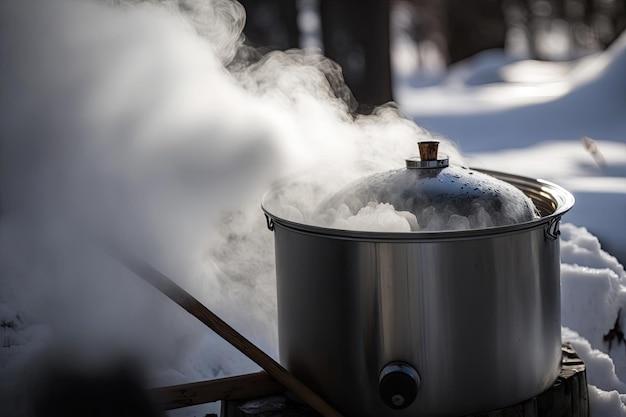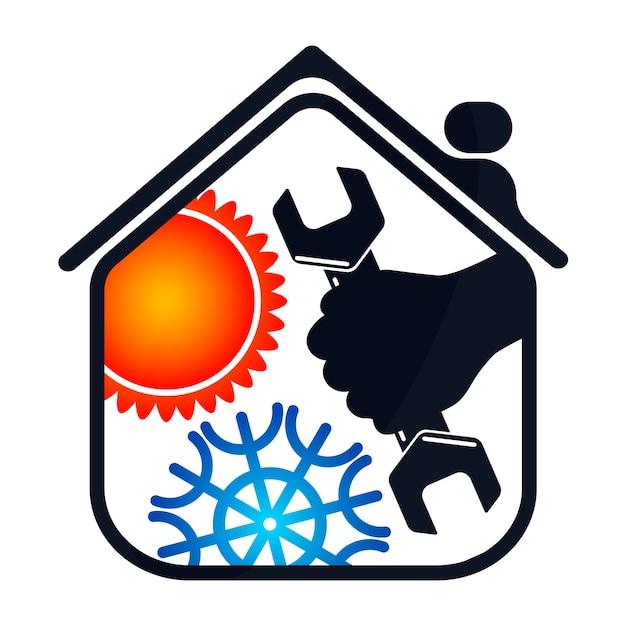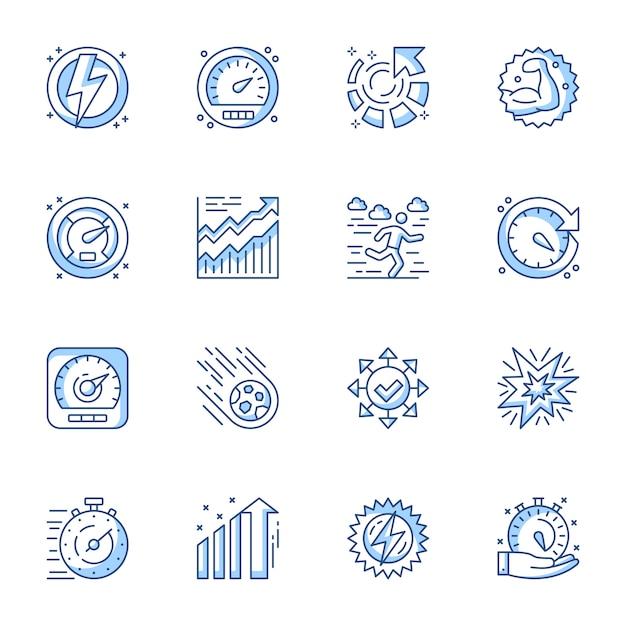The HVAC industry, like many others, experiences its highs and lows throughout the year. While homeowners rely on their heating, ventilation, and air conditioning systems year-round, there are certain months where the demand for HVAC services reaches its peak. But what happens during the slow season? How can HVAC professionals make the most of this quieter period?
In this blog post, we will dive into the concept of HVAC seasonality and explore the reasons behind the busiest and slowest months for HVAC businesses. We will also address frequently asked questions, such as how often HVAC systems should be replaced and the best time of year to do so on a budget.
Is HVAC Seasonal? Absolutely! HVAC professionals must contend with seasonal fluctuations, influenced by the weather patterns and climate of a given region. The busiest months often coincide with extreme temperatures – scorching summers or frigid winters – when the demand for heating or cooling is at its highest. However, what about the rest of the year?
Surviving the Slow Season requires HVAC businesses to adapt and find innovative strategies to stay afloat. Exploring the benefits of preventative maintenance plans, diversifying services, and focusing on customer relationships can help weather the storm during these off-peak months. After all, downtime can be an opportunity for growth and improvement.
Replacing Your HVAC System is a costly endeavor, so understanding when it’s necessary can save you money in the long run. We’ll discuss the factors that determine the lifespan of an HVAC system and offer tips on how to extend its durability. Additionally, we’ll reveal the best time of year to replace your HVAC system when prices may be more favorable.
Get ready to explore the highs and lows of the HVAC industry in our upcoming blog posts. Stay tuned as we delve into insightful discussions, practical tips, and surprising facts that will help HVAC professionals and homeowners navigate the ever-changing seasons with ease. Together, let’s uncover the secrets to thriving in the HVAC slow season!
HVAC Slow Season: Surviving the Lull in Business
Understanding the HVAC Slow Season
The HVAC industry, like many others, experiences periods of slower business known as the “HVAC slow season.” This is the time when demand for heating, ventilation, and air conditioning services decreases compared to peak seasons. It usually occurs during transitional periods, such as spring and fall, when the weather is more moderate and people rely less on their HVAC systems. But fear not! While the influx of customers might dwindle during this time, there are still ways to keep your business thriving.
Embracing Preventive Maintenance
During the HVAC slow season, customers might not be facing immediate repair needs, but that doesn’t mean there’s nothing to be done. Use this time to promote the importance of preventive maintenance. Educate your customers about the benefits of regular check-ups, such as ensuring their systems continue running efficiently and avoiding costlier repairs in the future. Offering discounted preventive maintenance packages can entice customers to invest in proactive HVAC care.
Expanding Your Service Offerings
With fewer urgent repair calls, consider expanding your service offerings during the HVAC slow season. Offering complementary services, such as air quality assessments or smart thermostat installations, can provide additional value to your customers. By diversifying your services, you can fill the gaps left by the decrease in repair calls and attract new customers who may not have considered your business otherwise.
Building Relationships through Social Media
Don’t overlook the power of social media during the HVAC slow season. Take this opportunity to engage with your existing customers and build relationships with potential ones. Share informative posts about HVAC tips, energy-saving suggestions, or even fun facts about the industry. Encourage your followers to ask questions or share their own HVAC stories. By maintaining an active presence on social media, you can keep your business top-of-mind for when customers eventually need your services.
Networking within the Community
While the HVAC industry may not be in high demand during the slow season, other complementary businesses are. Take advantage of this lull by networking with local contractors, builders, or property managers. Offer your services as a referral partner, and in turn, refer them to customers in need of their expertise. By establishing strong partnerships within your community, you can create a network of professionals who can support one another during slower times.
Planning Ahead for the Peak Season
Lastly, use the HVAC slow season wisely by planning ahead for the peak season. Take time to assess your inventory, restock supplies, and perform any necessary equipment maintenance. Use this time to train your team, staying up-to-date on industry trends and new technologies. By preparing in advance, you’ll be ready to hit the ground running when the busy season rolls back around.
So, while the HVAC slow season may present some challenges, it can also be an opportunity for growth and preparation. By focusing on preventive maintenance, expanding services, utilizing social media, networking, and planning ahead, you can keep your business thriving even when the phone isn’t ringing off the hook. Embrace the slower pace, and make the most of it.
HVAC Seasonal
Understanding the Fluctuations in the HVAC Industry
It’s no secret that the HVAC industry experiences seasonal fluctuations. During certain times of the year, HVAC companies find themselves busier than ever, while during others, they may struggle to stay afloat. In this section, we’ll delve deeper into the concept of HVAC seasonality and shed some light on what causes these fluctuations.
Winter Woes: The Slow Season
Ah, the dreaded slow season – the bane of every HVAC technician’s existence. As the temperature drops, so does the demand for heating maintenance and repairs. Homeowners tend to overlook their heating systems until a brutal cold snap catches them off guard. With fewer service calls and installations, HVAC companies often face a lull during the winter months.
Spring: A Ray of Hope
But fear not, for spring brings with it a ray of hope for HVAC professionals. As the flowers bloom and the sun graces us with its warmth, homeowners start thinking about their air conditioning systems. Spring is the time when people schedule routine maintenance, replace filters, and ensure their AC units are summer-ready. This surge in demand helps HVAC companies recover from the slower winter months.
The Busy Season: Sweet Summer
Summer, the season most synonymous with HVAC business boom! The sweltering heat prompts homeowners to crank up their air conditioners. But with increased usage comes a higher likelihood of system breakdowns and the need for repairs or even replacements. HVAC technicians are in high demand, running from one job to another, keeping us cool amidst the scorching summer days.
Fall: The Transition Period
As we bid adieu to summer and welcome fall, HVAC companies experience a transitional phase. Homeowners may still require a bit of cooling, but with the weather getting milder, the demand for air conditioning services decreases. However, it’s the perfect time for customers to get their heating systems checked before winter creeps in, ensuring they won’t be left shivering in the coming months.
Finding Balance: Adaptation is Key
To thrive in the ever-shifting HVAC industry, businesses must adapt to the seasonal nature of the trade. During off-peak months, companies can focus on marketing, networking, and skill enhancement for their technicians. Offering service packages, seasonal discounts, or maintenance contracts can help maintain a steady flow of work throughout the year.
The HVAC industry is just like the weather – subject to constant change. Understanding the seasonal fluctuations is crucial for both HVAC companies and homeowners alike. While the slow season may seem daunting, it’s important to remember that it’s just a passing phase. And as icing on the cake, the busy season presents its own set of challenges and rewards. So, let’s embrace the seasons, adapt to the ever-changing demand, and keep our HVAC systems running smoothly all year round!
How Often Should an HVAC System be Replaced
Introduction
When it comes to HVAC systems, knowing when to replace them can sometimes be a tricky matter. Let’s face it, no one wants to spend money on a new system unless it’s absolutely necessary. But at the same time, you don’t want to end up with an inefficient system that costs you more in repairs and energy bills than it’s worth. So, how often should an HVAC system be replaced? Let’s dive in and find out!
Average Lifespan of an HVAC System
On average, an HVAC system can last anywhere from 15 to 20 years. However, this can vary depending on a variety of factors such as the quality of the system, regular maintenance, and usage. If you’ve been diligent with proper maintenance and care, you might be able to squeeze a few extra years out of your system.
Signs It’s Time for a Replacement
Even if your HVAC system is within the average lifespan range, there are certain signs that indicate it’s time for a replacement. If you find yourself experiencing frequent breakdowns, rising energy bills, or uneven heating and cooling throughout your home, it may be a good indicator that your system is on its last legs.
Advancements in Technology
Another factor to consider is the rapid advancement of HVAC technology. Systems manufactured more than a decade ago may not have the same level of energy efficiency and performance as newer models. Upgrading to a newer system can not only provide better comfort but also save you money on monthly bills.
Energy Efficiency Considerations
With rising concerns about energy consumption and the environment, it’s worth noting that newer HVAC systems are designed to be more energy efficient. If your current system has a low SEER (Seasonal Energy Efficiency Ratio) rating or doesn’t meet the latest energy efficiency standards, it might be a good time to consider a replacement. A more efficient system can help reduce your carbon footprint and save you money in the long run.
Consultation with HVAC Professionals
The best way to determine if it’s time for a replacement is to consult with HVAC professionals. They can assess the condition of your system, consider your specific needs, and provide expert advice on whether a replacement is necessary. Remember, expertise matters when it comes to making such a significant investment in your home.
While there isn’t a specific timeframe for when an HVAC system should be replaced, considering its average lifespan, signs of wear and tear, advancements in technology, and energy efficiency can help you make an informed decision. Keep an eye out for the warning signs, seek professional advice, and remember that investing in a new system can ultimately save you money in the long run. Stay cool, friends!
What Time of Year is Cheapest to Replace HVAC
If you’ve been putting off replacing your HVAC system in hopes of snagging a better deal, you’re not alone. Many homeowners wonder, “What time of year is the cheapest to replace HVAC?” Well, get ready, because I’m about to break it down for you.
Winter Blues and HVAC Deals
As the temperature drops and winter sets in, many HVAC companies find themselves in a slump. The demand for heating systems decreases, and they are left with empty appointment slots to fill. So, what does that mean for you? It means potential cost savings! During the slower winter months, HVAC companies may be more willing to negotiate prices or offer special promotions to entice customers.
Sizzling Summer Savings
On the flip side, summer can bring its own set of HVAC deals. As the mercury rises, the demand for air conditioning units skyrockets, leading to a surge in HVAC installations. To stay competitive, some companies may offer discounts or incentives to attract customers. So, if you can handle the heat a little longer, you might just score some sizzling summer savings on your HVAC replacement.
The Shoulder Seasons: Spring and Fall
Ah, the sweet spot between extreme temperatures! Spring and fall are considered the shoulder seasons in the HVAC world. During these times, the weather is milder, and people rely less heavily on their heating or cooling systems. As a result, the demand for HVAC replacements slows down, creating an opportunity for potential bargains. Keep an eye out for specials or offseason discounts during these transitional months.
The Perfect Storm: Combining Factors
While it’s true that winter, summer, spring, and fall all offer their own potential savings, it’s important to consider other factors too. For example, if you can align your HVAC replacement with a manufacturer’s rebate program or take advantage of a tax credit, you could save even more. It may be worth waiting for multiple factors to align, like a perfect storm of deals, to get the best bang for your buck.
So, there you have it! While there isn’t one specific time of year that guarantees the cheapest HVAC replacement, different seasons and factors can play a role in your cost savings. From winter blues to sizzling summer deals and the shoulder seasons in between, timing your HVAC replacement smartly can help you keep more money in your pocket. Just remember to do your research, compare quotes, and ensure that the HVAC company you choose is reputable and reliable. Happy replacing!



